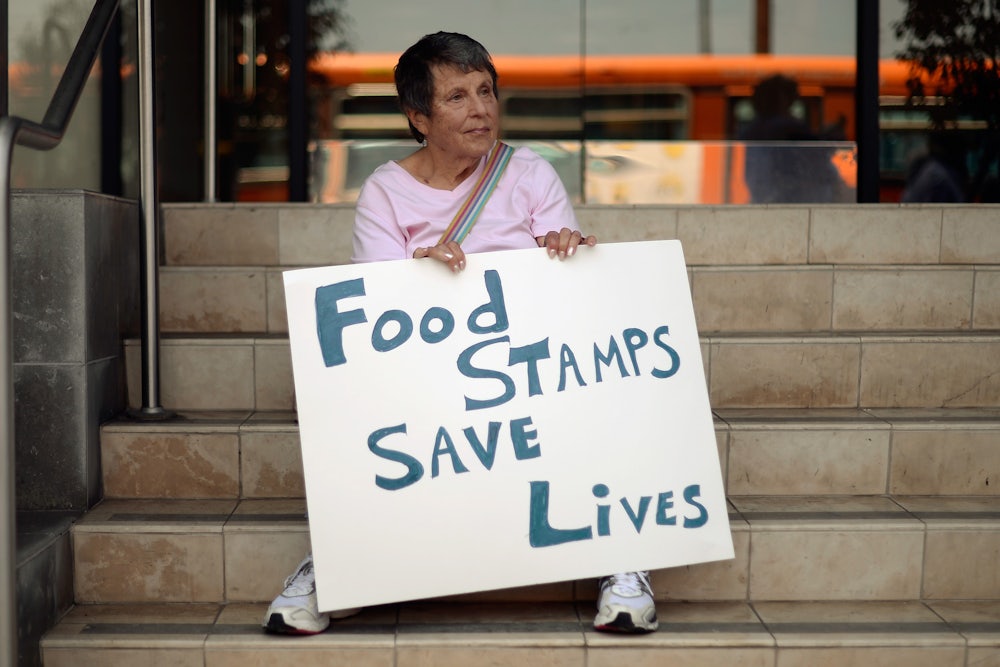By winning the House of Representatives on Tuesday, Democrats are no longer helpless in the face of Republican legislation. They have the leverage to influence—and, if necessary, to block—major legislation. That includes the farm bill, a multi-billion-dollar agricultural assistance package that also funds the Supplemental Nutrition Assistance Program, commonly known as food stamps.
Republicans on the House Agriculture Committee have been trying to gut SNAP under Trump (and for many years prior). In April, they released a farm bill containing strict new work requirements for potential food stamp recipients, and a $20 billion cut from the $70 billion anti-hunger program’s benefits over the next 10 years. The proposal was enthusiastically supported by President Donald Trump, whose administration had its own controversial proposals to revamp the program. (Who could forget the “Blue Apron for food stamps?”)
The House passed its version of the farm bill in June without any votes from Democrats, but the legislation has stalled in the Republican-controlled Senate because of the House’s food stamp proposal. Trump has been pressuring the Senate to accept the House’s version of the bill.
The Trump Economy is booming with help of House and Senate GOP. #FarmBill with SNAP work requirements will bolster farmers and get America back to work. Pass the Farm Bill with SNAP work requirements!
— Donald J. Trump (@realDonaldTrump) September 5, 2018
Then Tuesday’s elections happened, and Republicans lost control of the House and their ability to write the farm bill. When Democrats take control of the chamber in January, the House Agriculture Committee will be controlled by Representative Collin Peterson, who, despite being the most conservative Democrat in the House, is not a fan of the Republican food stamp proposal. “The food stamp stuff, I told them four months ago this was not going to fly,” Peterson said last week.
